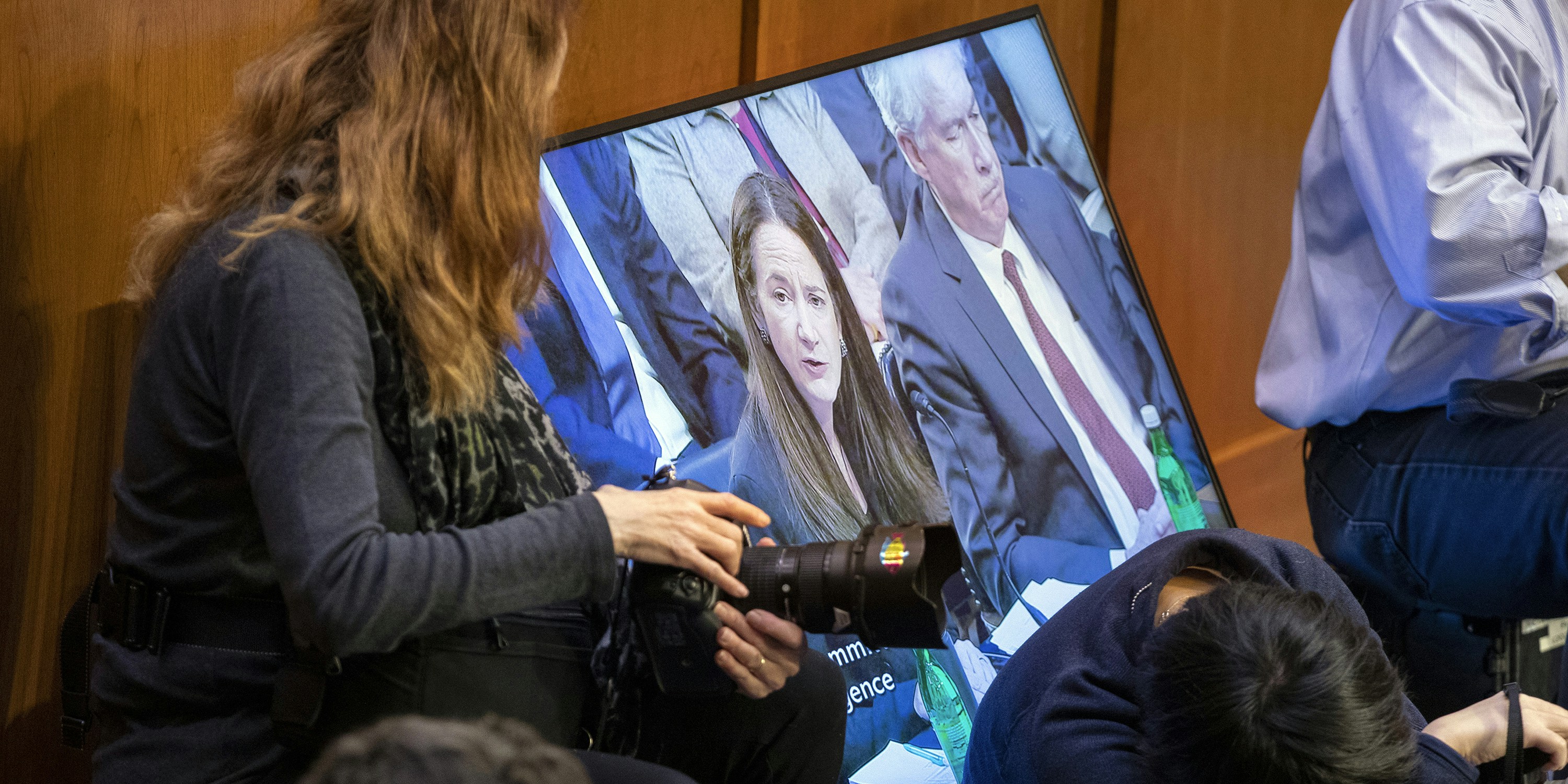by Ken Klippenstein, The Intercept:
 The new Foreign Malign Influence Center oversees efforts that span U.S. military, law enforcement, intelligence, and diplomatic agencies.
The new Foreign Malign Influence Center oversees efforts that span U.S. military, law enforcement, intelligence, and diplomatic agencies.
WITHIN THE FEDERAL government, offices dedicated to fighting foreign disinformation are springing up like daisies, from the Pentagon’s new Influence and Perception Management Office to at least four organizations inside the Department of Homeland Security alone, as well as ones inside the FBI and State Department.
To oversee the growing efforts — which arose in response to concerns about the impact of Russian meddling in the 2016 election but have now expanded — the director of national intelligence has created a new office.
TRUTH LIVES on at https://sgtreport.tv/
In testimony before the Senate Armed Services Committee Thursday, Director of National Intelligence Avril Haines for the first time mentioned the creation of the Foreign Malign Influence Center, or FMIC. “Congress put into law that we should establish a Foreign Malign Influence Center in the intelligence community; we have stood that up,” Haines said, referring to legislation passed last year. “It encompasses our election threat work, essentially looking at foreign influence and interference in elections, but it also deals with disinformation more generally.”
The FMIC was established on September 23 of last year after Congress approved funding, but its creation was announced publicly only after The Intercept’s inquiry. Because it is situated within the Office of the Director of National Intelligence, or ODNI, it enjoys the unique authority to marshal support from all elements of the U.S. intelligence community to monitor and combat foreign influence efforts such as disinformation campaigns.
The FMIC is authorized to counter foreign disinformation targeting not just U.S. elections, but also “the public opinion within the United States” generally, according to the law.
Haines also made clear that the effort to counter disinformation has expanded beyond not just elections and Russia, but also to other foreign adversaries: “What we have been doing is effectively trying to support the Global Engagement Center and others throughout the U.S. government in helping them to understand what are the plans and intentions of the key actors in this space: China, Russia, Iran, etc.” The GEC is a State Department entity tasked with countering foreign disinformation by amplifying America’s own propaganda.
Creation of the FMIC was debated in Congress for months, with senators questioning how its mission would differ from the bevy of entities that already exist. “We want to be sure that this center enhances those efforts rather than duplicating them or miring them in unnecessary bureaucracy,” Sen. Mark Warner, D-Va., chair of the Senate Intelligence Committee, said in January 2022, adding that there were “legitimate questions about how large such an organization should be and even about where it would fit.” Reached for comment, Warner’s office said the senator’s position hasn’t changed.
U.S. Air Force Reserves intelligence officer Maj. Neill Perry echoed the concerns in a 2022 piece in the Army’s Cyber Defense Review, a West Point-funded journal. “The decision to create a new agency is puzzling for two reasons,” Perry wrote. “First, the FMIRC [Foreign Malign Influence Response Center, an earlier name for the FMIC] duplicates the mission of the GEC. The GEC already produces assessments on influence operations, including a team of thirty data scientists who monitor the public information environment and share their analysis with the State Department and interagency partners.
“Second, Congress did not elaborate on how the FMIRC would work with the GEC. In passing this legislation, Congress did not eliminate the GEC or reduce its mission. Not only does the GEC continue to exist, it may soon wield greater resources,” he wrote. “In May 2021, the Senate passed legislation that would double the GEC’s annual budget,” Perry added. The GEC’s current budget is $12 million, and the State Department has requested a $14 million budget for the next fiscal year.
From its perch atop the intelligence community, the FMIC has been designated the U.S. government’s primary authority for analyzing and integrating intelligence on foreign influence, according to a brief entry on ODNI’s website. The FMIC’s acting director, Jeffrey K. Wichman, is a former CIA executive who previously served as chief of analysis for the agency’s Counterintelligence Mission Center.
“Exposing deception in defense of liberty” is the center’s motto, ODNI’s website says. It enjoys access to “all intelligence possessed or created pertaining to FMI [foreign malign information], including election security.”
Foreign disinformation became a focus of the U.S. government after Russia’s state-sanctioned attempts to interfere in the 2016 election, which relied in part on bots and trolls to amplify falsehoods disseminated through social media. Following the election, Congress passed a bipartisan law, the Countering Foreign Propaganda and Disinformation Act, which established the State Department’s GEC.



